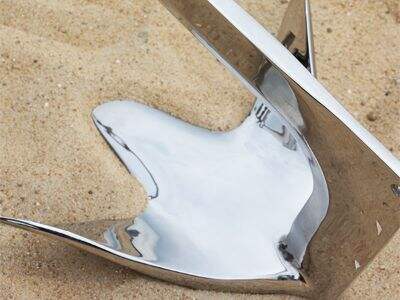Ensuring that marine hardware can take the saltwater is of extreme importance. Metal parts can rot and corrode if affected by saltwater. We can test marine hardware for resistance to salt water to help it have a long life and work properly in water. Shenghui is a factory that makes marine hardware, and we want our products to be good.
How to Test Marine Hardware for Saltwater Resistance?
Knowing that salt water resistance testing is so important gives us the assurance we need to know that marine hardware is going to last. Corrosion is known to be destructive to metal, so we should probably check whether that hardware can take being around saltwater. If Marine Parts is not well tested, it can easily be damaged, and may even break when submerged in water. Saltwater testing is one way that we ensure our products perform well and last for a long time.
When looking at how marine hardware performs for saltwater resistance, there are several factors to consider: the metal, any coatings or coverings on that metal, and the way the hardware is made. Various metals and coatings are resistant to saltwater in different ways, so we need to select the appropriate materials. The form and structure of the hardware also make a difference when we test it for saltwater resistance.
Here are a few things you can do to test marine hardware for anything that is saltwater corrosive.
Prepare a saltwater solution by combining water and enough salt to make it taste salty.
Place the marine hardware into the saltwater solution and let it sit for an allotted period of time.
Remove the hardware from the saltwater and look for damage or rust.
Test it multiple times to be sure the hardware can withstand an extended dunk in saltwater.
The following are a few of the more common methods used to test the resistance of marine hardware to saltwater: salt spray testing, immersion testing, and electrochemical testing. Salt spray testing It involves drenching the hardware with a salty water mist and observing how it behaves. Immersive testing entails submerging the hardware in saltwater for a certain period of time to observe its response. How quickly the hardware rusts in saltwater constitutes the electrochemical testing. Using these tests, we can learn how well marine accessories will perform in the water.
Here are few measures to help make marine equipment last longer against saltwater damaging corrosion
The correct materials on the hardware are chosen, a protective layer is added, and the hardware is frequently checked for damage or rust. We can do our part by selecting materials that can tolerate saltwater, and therefore help hardware hold up longer. Some kind of protective coating will help prevent the equipment from getting rust and damaged in salty water. Inspecting hardware regularly can catch problems early, and prevent continuation of further damage.
Conclusion
In summary, it is crucial to test marine equipment with saltwater resistance in mind. Since it will be a while, whatever enters helps to make sure it will last and that it will also do its job in the water. As long as we understand the importance of this testing, and take into account various factors, we can keep our products at a high standard. Afterward, by following the step by step instructions on testing and the most common ways to test for saltwater resistance we can see how well marine hardware will fare in water. Using tips for making Marine Equipment last Longer against saltwater will give us confidence in knowing that our products will withstand saltwater damage and will also last a long time. Shenghui is committed to offering high-quality marine hardware that can withstand saltwater for a very long time.

 EN
EN
 AR
AR BG
BG CS
CS DA
DA NL
NL FI
FI FR
FR DE
DE EL
EL HI
HI IT
IT JA
JA KO
KO NO
NO PL
PL PT
PT RO
RO RU
RU ES
ES SV
SV TL
TL IW
IW LT
LT SR
SR SK
SK UK
UK VI
VI SQ
SQ HU
HU MT
MT TH
TH TR
TR FA
FA AF
AF MS
MS GA
GA AZ
AZ BN
BN LA
LA
